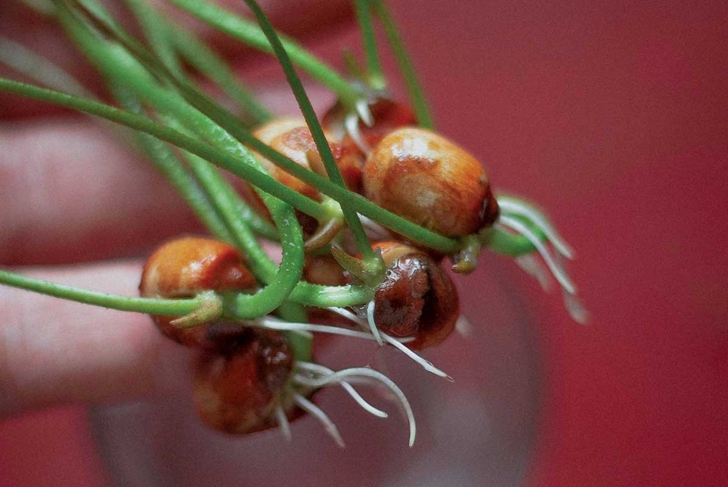Food Production in the Age of Gene-Editing Technologies
Why awareness and transparency matter

What do you value most when purchasing food, whether at the store or farmers’ market? Is it freshness? Knowing where it comes from? Whether it is certified organic, or conventional? Freedom of choice is vital to a democratic society, and that’s one of the reasons why the recent policies regarding gene-edited plant seeds pose questions.
The science of gene editing
Have you ever heard of CRISPR? Nope, it’s not a new type of air-fryer, nor a crunchy snack, but a method through which certain genes of an organism are edited to either enhance their expression (for desirable qualities) or knock it off altogether (for unwanted characteristics).
Think of it as scissors that can act on specific sites where certain genes reside. Gene-editing technologies can be applied to plants and animals, and they have advantages (disease resistance, for example), but the risks must also be considered (unintended targets, enhanced inequity between rich and poor, intellectual property concerns, and lack of transparency).
Moving too fast?
On May 3, 2023, Agriculture Minister, the Honourable Marie-Claude Bibeau, announced a decision to allow new gene-edited (GE) seeds to be released in Canada without health or safety assessments and only voluntary disclosure (the database is maintained by Seed Canada, an industry group). The announcement spurred questions and concerns from organic farmers and consumers in Canada.
“The organic standards in Canada (and around the world) prohibit the use of all forms of genetic engineering, including gene editing, genetic modification, and CRISPR technology,” says Tia Loftsgard, executive director of the Canada Organic Trade Association.
Genetically modified plants (GMOs), which contain foreign DNA, are regulated for environmental safety, but that’s not the case for gene-edited seeds, which are, for now, exempt from environmental assessments and public disclosure.
What lands on the dinner plate
When it comes to plants, gene editing allows for enhancing taste, nutritional qualities, resistance to pests, or ability to grow despite climate change factors such as drought, increased salinity, extreme temperatures, or diseases and pathogens.
Like all new scientific advances to be used outside the lab, the introduction of GE plants should require an objective and thorough (long-term) assessment while also informing the public on the science, risks, and benefits, and acknowledging the potential impacts on farming.
“The guidelines adopted do not align with the precautionary principle important to the organic sector on this topic,” says Loftsgard. Mandatory traceability and transparency, on the other hand, she says, “allow free and voluntary choice of cultivation methods for Canadian farmers and consumers.”
Climate change and food supply
The Intergovernmental Panel on Climate Change projects that by mid-century, climate change may cause up to 80 million people in some areas of the world to go hungry, with concerns of undernutrition and increased mortality due to inadequate diets globally.
However, food production and the health of the environment are intricately linked, hence the need for a multipronged approach, including water management, soil regeneration, increased community-based farming (including urban farming), and farming and landscape diversification.
“With smart changes in land use and agroecological innovation, combined with a shift in diets and types of production as well as policies to minimize waste, it is possible to produce sufficient food while safeguarding natural resources,” says Loftsgard.
Using GE plants to generate resilient varieties can be yet another tool, but what about potential risks? “Genetically modified plants and seeds are not a magic bullet and are frequently used in combination with pesticides,” says Loftsgard. “Food systems are complex and rely on interactions between crops with their environment, soil health, and relationships with other species.”
Developments are welcome, but transparency is a must
Can scientific advances, agriculture, and consumer expectations find common ground? As with all big questions in life, open communication and transparency are key. Public disclosure allows us to choose the food we buy and whether we support traditional or GE-supported agriculture.
Also, the legislation on GE plants may differ among countries, which can affect food trade.
Seed patenting (as opposed to seeds being in the public domain) can also become a contentious issue, affecting farmers but also consumers.
“The organic and non-GMO sector is not trying to prevent gene-edited seeds from being available,” says Loftsgard. Rather, “they are asking for mandatory traceability and transparency to allow free and voluntary choice of cultivation methods for Canadian farmers and consumers; a voluntary database is not a sufficient mechanism.”
What you can do
If you are concerned about the new policies that allow GE seeds (and crops) to enter our food system without government oversight and public disclosure, you can act by writing to your member of Parliament and asking that the ministers of Health and Agriculture reverse their decision.
Please visit cban.ca/take-action/no-exemptions/ for more information and to take further action.
GE foods and seeds in numbers
· 40 crops have been modified using CRISPR including rice (43 percent), tomato (12 percent), maize (9 percent), wheat (7 percent), and potato (4 percent).
· 5 crops have genetically modified traits grown in Canada as of 2022: corn, canola, soy, sugar beet, and alfalfa.
· 7 large corporations have submitted at least 200 international patent applications for GE seeds/plants.
This article was originally published in the November 2023 issue of alive magazine.





